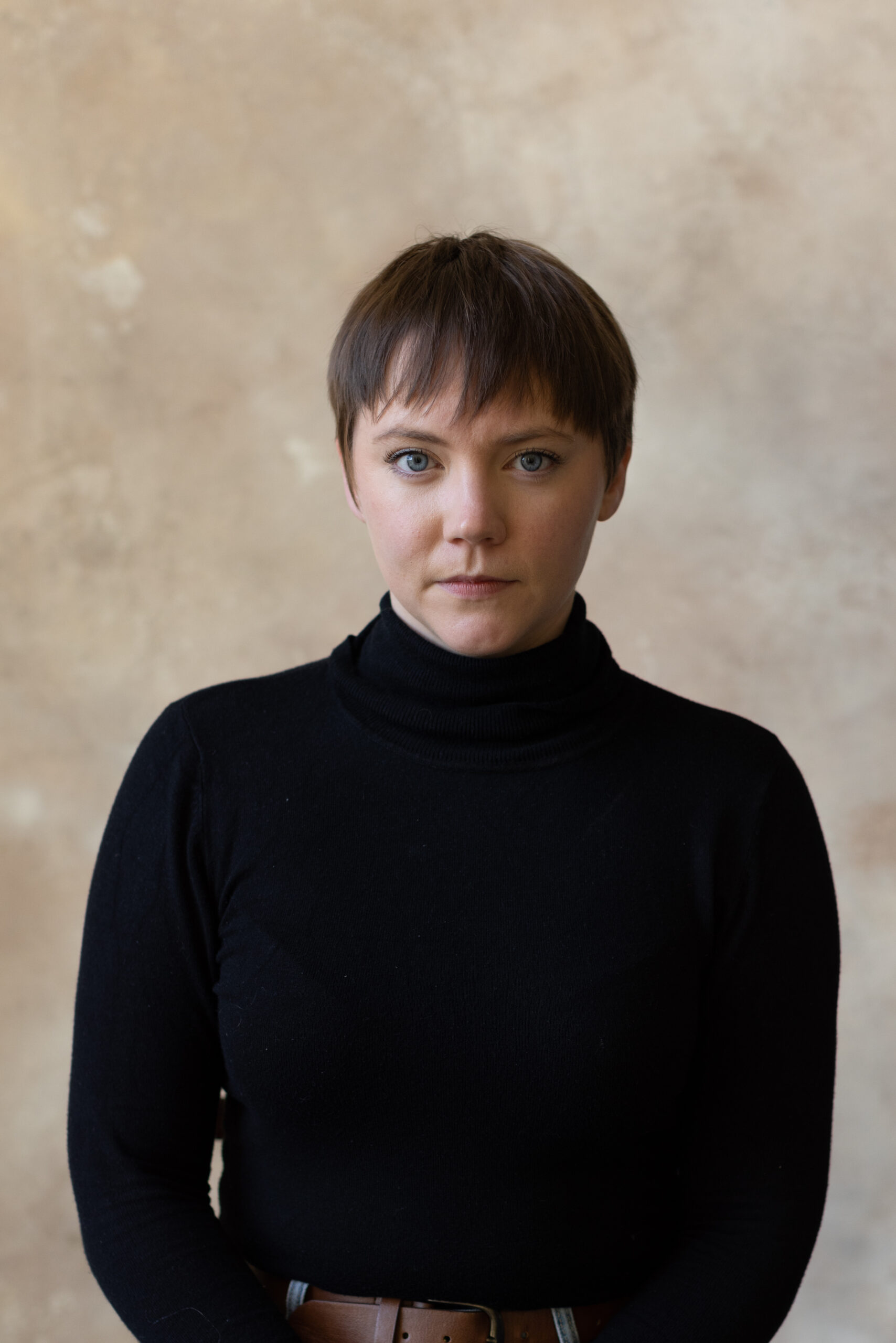
Does an aspiring actor need to be out every night of the week, chatting and shaking hands with members of the theatre industry until their smile is aching and the red light is flashing aggressively on their social battery in order to secure roles?
The University Times sat down with Dublin-based actress Chloe O’Reilly to talk about all things Irish theatre. O’Reilly provides a window into the Irish artist’s emergence onto the stage, from coronavirus years training in the Lír, acting through obstructive screens on Zoom and above face masks, all the way to her Abbey debut in the subversive reimagining of Brendan Bhehan’s The Quare Fellow, running from November 24th to January 27th.
If any aspiring actors would like to know O’Reilly’s drink of choice, at least on this particular Friday evening, it was a tasteful chai latté with oat milk. I went for a pretty safe decaf latté, and over these, I asked O’Reilly about her experience as a student and her subsequent arrival into Dublin’s art scene.
She explains, “I had been in UCC (University College Cork) studying English and French and then I took a year off, moved to Dublin, got myself set up here and realised pretty quickly that a lot of the places I wanted to work with were hiring people from the Lír. So I was like, ‘If you can’t beat them, join them’”.
O’Reilly quickly proved herself as a fixture in the fabric of Irish theatre when she debuted in Gina Moxeley’s Danti Dan, directed by Aaron Monaghan with Livin’ Dred Theatre Company. “I graduated in October and found out I was doing the show in October.” O’Reilly continued on to describe how she secured her first role after her degree. She reached out to one of her tutors in the Lír who then emailed Aaron Monaghan. This sparked our chat to veer into a conversation about the nature and toxicity of networking culture. From an external perspective, the theatre industry seems to subscribe to this exclusive world of connections, where social status becomes a real bartering chip.
O’Reilly responded that, in reality, this isn’t as much the case as it appears to be from the outside, this idea of “‘do I need to be having pints in a certain pub every night of the week to get jobs?’ And I don’t think that’s the case really. I think if you’re sound and you do the work and are nice to people, I don’t think you need to”. She went on to stress that there is an element of initiative to be assumed after you graduate, “I suppose you come out with all of these connections, but they’re not going to be getting onto you”.
Theatre in Dublin is bursting with talented individuals. When I asked O’Reilly if anyone in particular inspired her as an actress, she mentioned Fionn Foley, as well as Gina Moxely who is also working on The Quare Fellow. “I found her a huge inspiration. She’s been a really wonderful guiding star for me. I really love her ability to just go for it and see what happens. She’s got a real ballsy energy about her”.
O’Reilly’s recent project, the Abbey’s production of The Quare Fellow, continues on writer Brendan Behan’s legacy of subversion in art with an all-female and non-binary cast of actors performing in the stead of an all-male cast. O’Reilly talked about her experience experimenting with this reimagining, and her subsequent difficulty imagining the show in its original form. “That’s a lot of testosterone in one room!”
She continued, describing how as an actress facing this material, discovering who the characters are as people has unfolded considering the implications of gender, “I think it’s exciting to see more non-binary people on stage… I think it shows that we’re all just here. When thinking about the play, gender has not been at the forefront of my mind, it’s been who they [the characters] are as people”.
Sipping on cool coffee and enjoying the lofi jazz aesthetic the coffee shop had now assumed, O’Reilly expressed how deeply art has provided her with a creative outlet for further discovery of her character’s identity, “For this show, I have a scrapbook that I put pictures and art into, and I also have this playlist that I love to listen to. I kind of really like to find a moment in a poem that I think really encapsulates the character and then before the show starts I read over that poem to get me into it”. A line from Seamus Heaney’s ‘The Given Note’ came to mind for O’Reilly as being particularly resonant to this role, specifically the line, “He got his air out of the night”.
As the last few dregs were drained from our mugs and the baristas had begun to give very politely pointed looks of “please, leave” to our table, O’Reilly elaborated on the concept of becoming a role. She put it down to her training at the Lír and how they approached this process of origins. “In first year, the question was ‘who are you?’ It’s very intense and reflective but it makes you kind of go, well I know who I am so much that you can then say who is this character and how are they similar to me? Do they move like I move?”
This process of self-reflection, deconstruction and discovery eventually led O’Reilly to the integral question of “Who am I as an artist, and what kind of artist do I want to be?”. A question she continues to pursue and unravel as her career expands.






